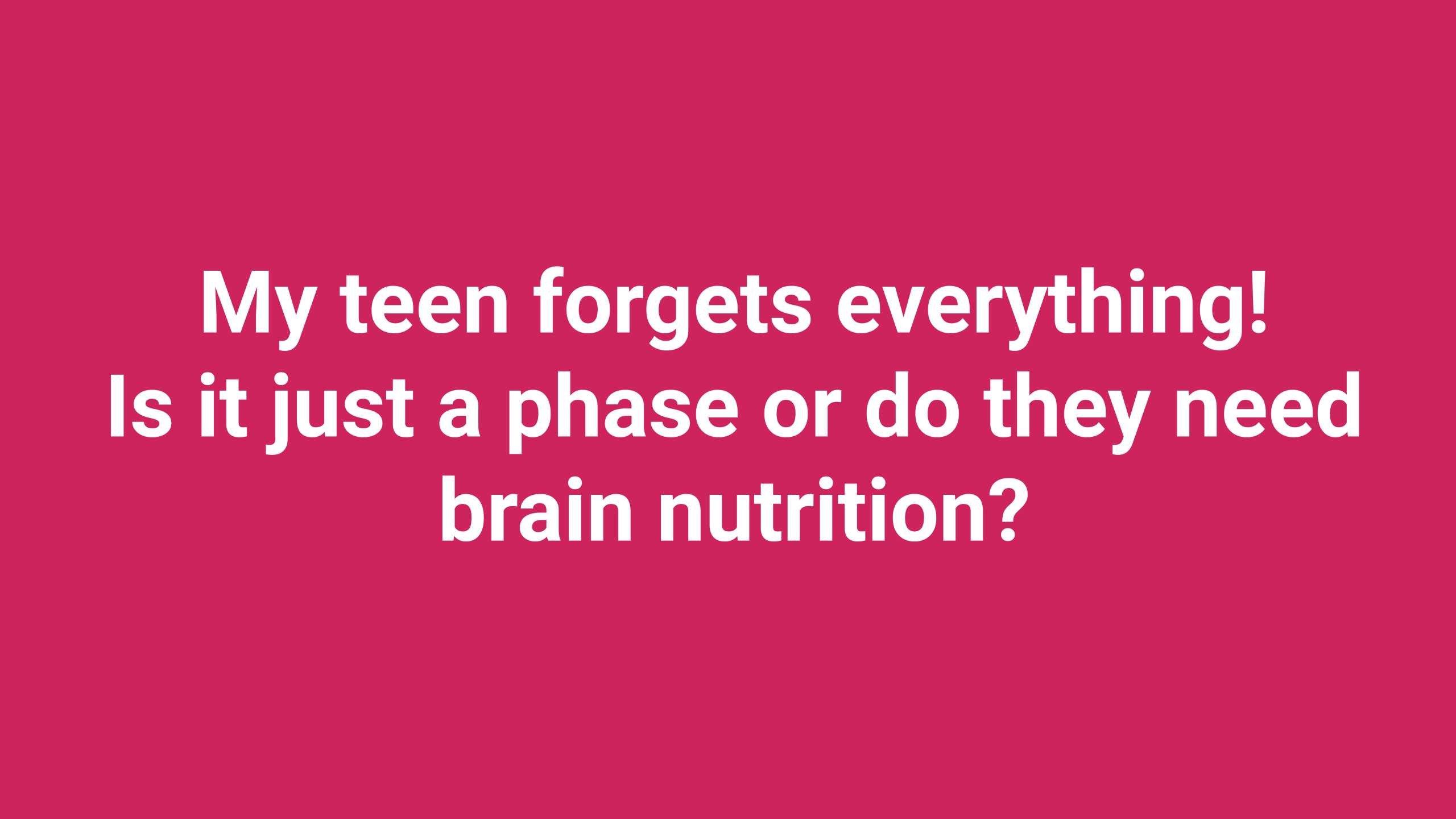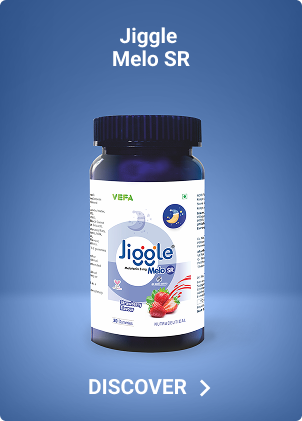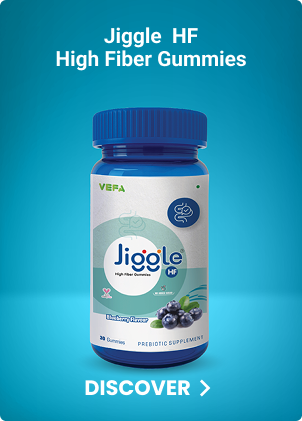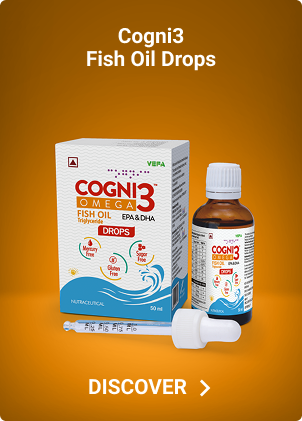My Teen Forgets Everything! Phase or Nutrition Gap?
Adolescence is a time of fast growth both physically and mentally. Many parents notice that their teenagers are forgetful: missing homework deadlines, losing track of books, or even forgetting important conversations. While some of this is due to the natural process of the brain reorganizing during teenage years, it can also highlight nutritional and lifestyle gaps that directly affect brain health for teens.
Also Read: What are Nutrition Supplements?
Why Do Teens Forget So Much?
Brain Development:
The teenage brain is still under construction, especially the prefrontal cortex responsible for planning and memory.
Sleep Deprivation:
Late-night study sessions, social media, and irregular sleep cycles reduce memory retention.
Stress and Overload:
Academic competition, peer pressure, and multitasking overload the brain.
Nutrition Deficiency:
Lack of omega-3 fatty acids, essential vitamins, and minerals weakens cognitive performance.
Also Read: Why do we take Fish Oil Supplements?
The Role of Brain Nutrition for Adolescents
A well-fed brain functions sharper and retains information longer. Nutrients like DHA, B vitamins, iron, and amino acids directly impact focus, learning, and recall. Balanced meals with whole grains, nuts, seeds, fruits, vegetables, and lean proteins form the foundation of brain nutrition for adolescents. But sometimes, food alone may not be enough.
Also Read: Who should take Omega 3 Supplements?
Memory Supplements for Students
Many parents explore memory supplements for students to support their children during crucial academic years. Some commonly studied supplements include:
- Omega-3 fatty acids (DHA & EPA): Fatty acids improve neuron connectivity and attention span.
- Phosphatidylserine: A naturally occurring phospholipid that supports memory, learning, and mood regulation. Phosphatidylserine uses include reducing stress hormones like cortisol, enhancing focus, and improving information recall.
- Ginkgo Biloba: Promotes better blood circulation to the brain.
- B vitamins & Magnesium: Vital for energy metabolism and concentration.
Also Read: How does a Health Supplement Improve Your Health?
Lifestyle Boosters for Brain Health
Besides supplements, daily habits strongly influence teen memory:
- Encourage 8–9 hours of quality sleep every night.
- Instruct mindfulness and breathing exercises to reduce stress.
- Promote physical activities like sports or yoga that enhance blood flow to the brain.
- Limit screen time to avoid mental fatigue.
Also Read: Are Nutritional Supplements Really Helpful?
When to Seek Help?
If forgetfulness persists and severely impacts academics, mood, or social life, it’s worth consulting a pediatrician or neurologist. Sometimes frequent lapses may also be linked to underlying conditions such as attention deficits, anxiety, or nutritional deficiencies that need professional attention.
Also Read: What Exactly are Dietary Supplements?
Conclusion
Forgetfulness in teenagers is often seen as a passing phase, but ignoring it completely might not be wise. Strengthening brain health for teens through a nutrient-rich diet, adequate sleep, stress management, and safe memory supplements for students can help. Ingredients like phosphatidylserine are backed by research for improving learning and retention, making them valuable tools in supporting brain nutrition for adolescents. With the right balance of food, supplements, and lifestyle, your teen’s memory can move from “forgetting everything” to “remembering success.”
Also Read: Why does my child struggle to concentrate even after sleeping well and eating right?












